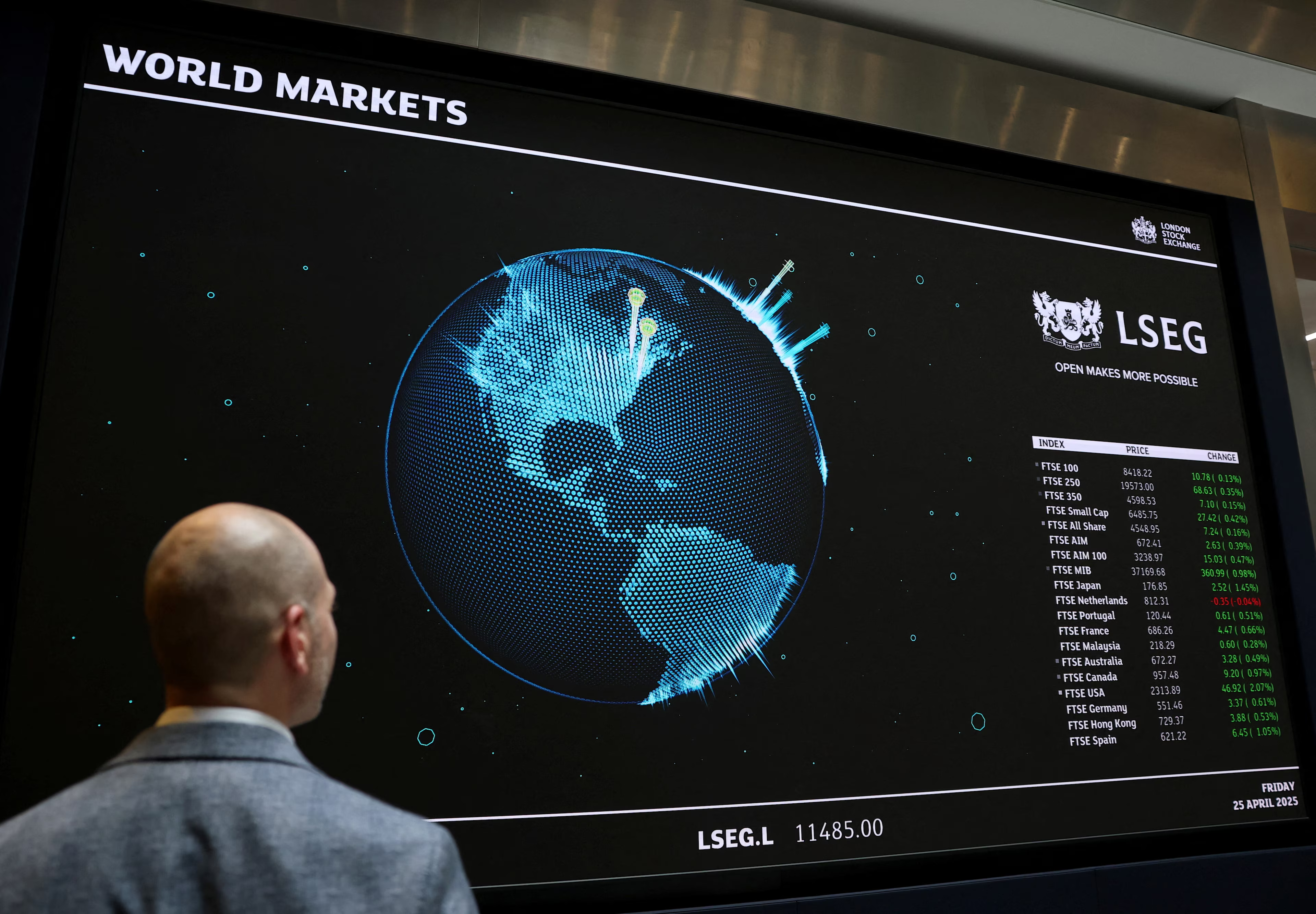Uncertainty is the defining theme of the global economic environment, according to the World Economic Forum’s latest Chief Economists Outlook; 82% consider it very high currently, and 56% anticipate easing over the next year.
The growth outlook is divided, with weak prospects in North America, resilience in Asia-Pacific, and cautious optimism in Europe.
Artificial intelligence is expected to drive growth, but 47% anticipate related net job losses.
세계경제포럼, 2025년 5월 28일 게시
Aengus Collins
Head, Economic Growth, Revival and Transformation, World Economic Forum
Philipp Grosskurth
Insight Lead, Economic Growth, Revival and Transformation, World Economic Forum

In May 2025, uncertainty is the defining theme of the outlook for the global economy. Since the beginning of the year, a series of trade-policy shocks has darkened the outlook, and threatens to paralyze economic and commercial decision-making. 87% of respondents in the World Economic Forum’s latest survey of chief economists expect businesses to delay strategic decisions, which would exacerbate recession risks.
The Forum’s survey was conducted in the first half of April, when trade-related uncertainty was particularly high. It finds that the “unanimous view of respondents was that global economic prospects are set to weaken considerably this year, a significantly gloomier outlook compared to the previous survey in November 2024.”
Published three times a year, the Chief Economists Outlook surveys leading chief economists from across industries and international organizations. The latest edition investigates the drivers and impacts of currently exceptional levels of uncertainty, and discusses the compounding effect of an ongoing AI revolution.
“Policymakers and business leaders must respond to heightened uncertainty and trade tensions with greater coordination, strategic agility and investment in the growth potential of transformative technologies like artificial intelligence. These steps are essential for navigating today’s economic headwinds and securing long-term resilience and growth.”
— Saadia Zahidi, Managing Director, World Economic Forum

Chief economists were asked to assess a global economy in flux.Image: World Economic Forum
Global uncertainty is seen as “very high” by 82% of the chief economists. While a narrow majority (56%) expect conditions to improve over the next year, 21% expect uncertainty in a year to be even higher. The report notes that “While the pausing of most planned tariffs has brought significant relief, the post-pause outlook remains uncertain, and the volatility of decision-making has triggered questions about the continuing reliability and predictability of economic policy in the US.”
In early April, at the peak of uncertainty, most chief economists (77%) were anticipating weak or very weak growth through 2025 in the US, alongside high inflation (79%) and a weakening dollar (76%).
By contrast, they were cautiously optimistic about Europe’s prospects for the first time in years, mainly because of expectations of fiscal expansion – notably in Germany. The outlook for China remains muted; the chief economists were divided over whether it will reach its target of 5% GDP growth this year. Optimism remains highest for South Asia, where 33% expect strong or very strong growth this year.
Nearly all the chief economists (97%) place trade policy among the areas of highest uncertainty, followed by monetary policy (49%), and fiscal policy (35%). “In addition to making economic policymaking more challenging in each of these areas, the recent surge in uncertainty also increases the risk of damaging policy coordination missteps both within and between countries,” the report concludes. This uncertainty is expected to weigh on key economic indicators, including trade volumes (70%), GDP growth (68%), and foreign direct investment (62%).

Chief economists cautioned that we’re in for a long-term shift.Image: World Economic Forum
The latest Chief Economists Outlook reveals that a strong majority (79%) of surveyed economists view the current geo-economic developments as a significant structural shift for the global economy rather than a temporary disruption. This is a significant increase from 61% as of November 2024, and points to a global economy moving into a new phase of disruption and adaptation to new realities.
“You can no longer and should no longer rely on one end market. You need to go out and find new markets. And that creates excitement, that creates new trade deals. I think globalization, far from being dead, is evolving.”
— Guy Miller, Zurich Insurance
Business as usual is not an option anymore. At the same time, making the right decisions in an environment of exceptional uncertainty has become increasingly difficult.
“The most likely response, highlighted by 100% of the chief economists surveyed, involves reorganizing sourcing and logistics to reduce exposure to tariffs or export controls over the next three years,” the report notes. A large majority of chief economists (87%) also expect that businesses will respond to uncertainty by delaying strategic decisions, increasing recession risks. The report concludes that “the complexity of the current environment means that businesses will need to balance proactive adaptation with the risk of overextending resources or delaying critical decisions.”

Companies are under pressure to operate under extraordinary uncertainty.Image: World Economic Forum
In addition to geopolitical and economic shifts, the extraordinary speed of the AI revolution is another source of short-term uncertainty – as well as longer-term structural shifts in the global economy. AI is poised to drive the next wave of economic transformation, unlocking significant growth potential but also introducing serious risks.
Although only 45% of chief economists expect AI to become commercially disruptive this year, a similar share (46%) expect AI to deliver a modest boost to global real GDP of between zero and five percentage points over the next decade, with a further 35% projecting gains of between five and 10 points. While the technology has the potential to nudge global growth up from its current sluggish trajectory, its broader impact on aggregate employment remains uncertain. 47% expect net job losses over the next decade, compared to just 19% who expect gains.
“The estimates vary but you’re looking at trillions of dollars added to the economy, so something incredibly exciting, and that doesn’t come a moment too soon if you ask me.”
— Fabien Curto Millet, Google

AI will have a mixed impact on the global economy, chief economists say.Image: World Economic Forum
The key channels through which AI will boost growth, according to the chief economists, are task automation (68%), accelerated innovation (62%), and worker augmentation (49%). However, respondents also highlighted a number of potential risks that AI poses to sustained growth: misuse for disinformation and societal destabilization (53%), rising concentration of market power (47%), and disruption of existing business models (44%).

